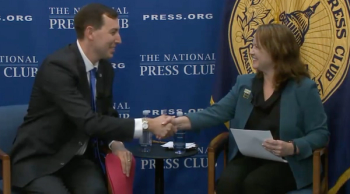
Physicians, hospitals, prescription drugs at top of list for expenditures.

Physicians, hospitals, prescription drugs at top of list for expenditures.

Three in four older adults think Medicare should cover prescription medication for weight management.

Study shows the need for greater communication with patients beyond the initial prescription

The top news stories in primary care today.

The top news stories in primary care today.

Law could change Medicare Physician Fee Schedule, affecting reimbursement to doctors.

Public-private partnerships will crumble, hurting drug innovation and eventually patients, Republicans say.

Are you ready for what's coming next year?

By building a foundation of trust through personalized care, AI will not only enhance patient-provider relationships but also set new standards for patient loyalty and active participation in health care, leading to reduced no-shows and readmissions.

Massive amounts of money are spent on obesity's downstream effects — and not enough on addressing the cause.

The top news stories in primary care today.

When hospitals communicate with primary care physicians, good things can happen for patients and their doctors.

Efforts to further reduce smoking among older adults are critical

Study reveals 1 in 8 older Americans consuming cannabis

Doctors need to address patients’ worries about costs.

KFF chief says affordability is part of national crisis in U.S. economy.

National Press Club learns about issues affecting a ‘health care system in crisis.’

Medicare Advantage could be a key part of potential transaction.

Patients turn to their primary care physicians for answers, making them a key member of a treatment team.

Difference in completion rates between in-person visits and telehealth visits was stark

Physicians can improve patient outcomes, accountability, and the financial bottom line through a hybrid focus on social determinants of health.

Private insurance covered over half of the visits, with Medicare, Medicaid, workers’ compensation, or self-pay accounting for almost 30%

Medical researchers have largely gone to white men to participate in studies. Health care leaders outline ways to cast a wider net, which will lead to better research and treatments for patients.

COVID misinformation is part of a larger trend across all content areas and it is a major concern for many

Preventive visits nearly doubled between 2001 and 2019